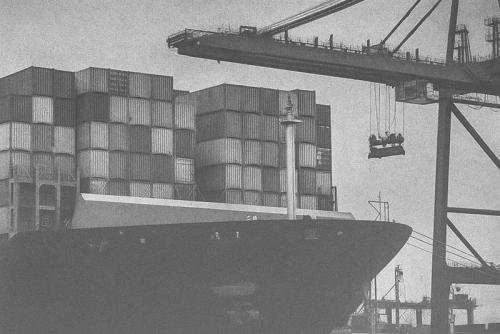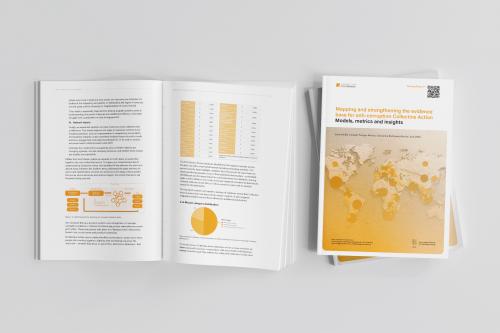Working Paper sheds fresh light on the sanctions and confiscation debate

As the war in Ukraine intensifies, calls are growing for states to confiscate Russian assets frozen under sanctions and redirect them to provide support to Ukraine. Our latest Working Paper argues that states can and should do this by enhancing the effectiveness and scope of established asset recovery measures – not by introducing new untested mechanisms that risk inviting future legal challenges, defeating the purpose of sanctions and violating the rule of law.
Go straight to Working Paper 42: From sanctions to confiscation while upholding the rule of law or read the key takeaways:
Executive summary
In light of recent world events, political leaders around the world have questioned whether it is justifiable to confiscate assets frozen under financial sanctions in order to redirect them to the victims of state aggression.
Some states have even sought to introduce legislative mechanisms to make it possible to confiscate an asset frozen under sanctions, purely on the basis that the asset has been made subject to a sanction. One state – Canada – has already done so.
The intention behind these mechanisms is clear: assets frozen under sanctions could be confiscated and repurposed to provide assistance and compensation to the victims of the sanctioned target.
In the context of the Ukraine war, for example, proponents argue that these measures will allow states to permanently confiscate Russian-linked assets under sanction and redirect them to provide support to Ukraine.
The debate
Should states be able to confiscate sanctioned assets* purely on the basis that they have been sanctioned?
The justifiability and legality of mechanisms such as Canada’s is currently the subject of debate. Two key issues include whether the confiscation of assets in such circumstances:
- is acceptable in the context of established legal rights and norms;
- defeats the primary purpose of sanctions as a tool of coercion.
Issues of property and due process rights
With regards to the first point, the lack of adequate judicial oversight included in such mechanisms, and the fact that these mechanisms aim to permanently deprive sanctioned targets of their assets, raises serious questions surrounding property and due process rights.
If such a mechanism was introduced in Europe for example, it is likely to be challenged on the grounds that it violates Protocol 1 Article 1 as well as Article 6 of the European Convention on Human Rights.
If such mechanisms were also applied to state-linked assets (such as sanctioned assets belonging to central banks) then this would also raise concerns regarding a possible infringement of domestic and international laws relating to state immunity.
Undermining the purpose of sanctions
With regards to the second point, permitting the confiscation of sanctioned assets arguably annuls the coercive purpose of sanctions regimes to act as a tool to persuade targets to cease their adverse behaviour.
If states are permitted to confiscate sanctioned assets (and make it impossible for a target to retrieve their frozen assets) then this effectively removes any incentive for the target to change their behaviour. In such cases, rather than operating as tools of coercion, sanctions would instead primarily operate to punish a target and provide compensation to the victims for the harm that has been caused.
Of course, some have argued that there is a greater need for these latter objectives, particularly in the context of the war in Ukraine where financial assistance is required urgently.
Others however argue that despite the urgency this situation presents, the long-term objective of sanctions should remain coercion, particularly if sanctioning states wish to compel the aggressing state, Russia, to contribute to post-war reconstruction efforts in the future.
Other options through which to confiscate assets under sanction
There are, in addition, several established avenues for seeking war reparations that should also be explored.
Such established measures that states could adopt and apply to target sanctioned assets include:
- Traditional conviction-based confiscation measures, including ‘extended confiscation’ mechanisms
- Non-conviction based confiscation (NCB) measures
- Unexplained wealth laws
These measures could be used to target:
- Assets that are involved in sanctions violations
- Sanctioned assets that are also the proceeds of crimes unrelated to the sanctions regime, such as corruption or organised crime offences
- Unexplained wealth
Maximising effectiveness of established asset recovery mechanisms
While these avenues may be limited, and can only result in the permanent confiscation of a portion of sanctioned assets, states could take various steps to maximise their effectiveness.
For example legislative amendments could be considered to broaden the scope of relevant terms like ‘money laundering’ and to specifically permit confiscated assets to be redirected to the victims of state aggression.
Domestic and international coordination could be improved by creating dedicated law enforcement bodies for example, or through participating in international coordination initiatives.
Importantly, these avenues target established criminal activity and/or include defined judicial processes through which a targeted person can challenge any attempts to confiscate their property. Therefore they can be applied without unacceptably infringing on legal rights.
Moreover, if states take measures to enhance the effectiveness and scope of established asset recovery measures, additional benefits can be derived for the broader fight against financial crime and kleptocracy.
The bottom line: maintaining the rule of law
Opting for mechanisms that abide by established legal rights will not only significantly increase the chance of recovering assets without subsequent legal challenges.
It will also ensure that the very reason for targeting the assets in the first place – namely to seek justice and compensation for acts of aggression – is not undermined through the erosion of the rule of law.
* The term ‘sanctioned assets’ is used as a shorthand to refer to assets of a sanctioned person or country.
Learn more
- Download the Working Paper.
- Watch or read the main takeaways from a December 2022 panel discussion on asset recovery developments since the start of the war in Ukraine.




